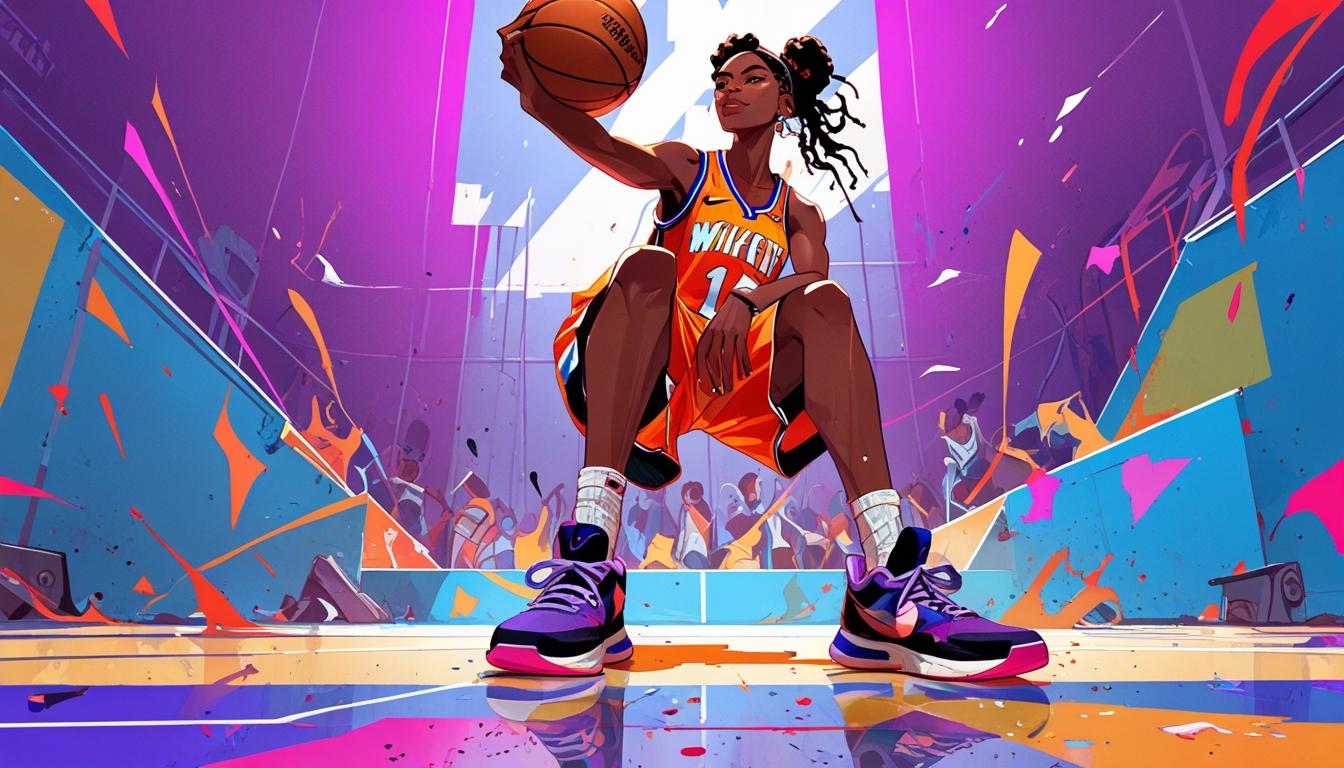Following a leadership change, Nike sees growth while Celtics star Jayson Brown speaks out against corporate influence in sports.
Nike, one of the world’s leading sportswear brands, has been experiencing a significant resurgence following the departure of former CEO John Donahoe last year. The company saw an immediate 8% rise in its stock value with Elliot Hill stepping into the CEO role, revitalizing its core business strategies and product launches. Since the beginning of the year, Nike has rolled out various signature sneaker collections, including releases for WNBA MVP A’ja Wilson and NBA star Shai Gilgeous-Alexander, with further teasers hinted for Victor Wembanyama’s signature model. Additionally, the company showcased its flagship Nike GT Future model during the All-Star Game, backing rookie AJ Dybanca.
In contrast, Boston Celtics forward Jayson Brown has been growing increasingly vocal in his criticism of Nike and the corporate sportswear industry. Brown, a two-time NBA All-Star, established his own brand, “741,” after a notable feeding of frustrations with mainstream companies. He rejected a contract worth over $50 million, opting instead to create a brand that prioritizes self-identity, athlete autonomy, and community involvement. “Understanding the responsibility of creating and managing your own brand, as well as realizing your own worth – that is what is important for the next generation of athletes,” Brown remarked. He emphasized the importance of redefining values for all stakeholders within the sports world.
The name “741” carries personal significance for Brown, who cites its association with spiritual awakening and new beginnings. The start of his professional journey saw him initially aligning with Adidas after being drafted as the third overall pick by the Celtics in 2016, but following his contract expiration in 2021, he did not remain with the brand. As he transitioned into establishing his own label, Brown expressed dissatisfaction with how major corporations operate within the industry. “Many guys focused much more on who to sign a contract with as quickly as possible rather than on personal improvement, striving to enhance their game,” he explained while discussing the detrimental effects corporate sponsorships had on players’ development.
Brown’s criticism of Nike intensified during a very public fallout regarding its partnership with fellow Celtics player Kyrie Irving, who was embroiled in controversy over promoting an anti-Semitic film. Brown expressed support for Irving on social media, which later included pointed remarks about Nike’s motivations surrounding ethics. His posts accused Nike of hypocrisy, referencing their ongoing lawsuits related to labor practices in Asia and other ethical concerns. These comments positioned him as a representative voice of discontent among athletes about corporate influence on individual progress.
As Nike continues to build its brand, the company also faces challenges from Brown’s emerging influence. He has spoken candidly about the negative implications of the corporate structure that can lead athletes into financial turmoil after their careers end. “Between 40 to 60 percent of our athletes go bankrupt or lose a large part of their wealth ten years after they finish their careers,” he highlighted, stressing the need for better management support for players.
The buildup of tension between Brown and Nike escalated as the 2024 Olympics approached. Although Brown aimed to join Team USA as they prepared for the Paris games, he was notably absent from the final roster, leading to speculation and discussions about the dynamics of sponsorship relationships influencing selection. Brown took to social media to question Nike’s commitment to representation and acknowledgment of his talent, further suggesting that athletes must navigate a complex web of sponsorship politics.
Following his Finals MVP achievement, Brown has maintained a critical stance against Nike, launching a series of social media posts that both subtly and overtly question the brand’s practices. Despite the ongoing conflict, Nike continues to thrive on its media exposure, even leveraging Brown’s notoriety in promotional campaigns.
With Brown poised to unveil further accounts of his experiences with Nike and the sportswear industry, the future of both the brand and his own ambitions remains uncertain. Nonetheless, as he champions a different model in sports marketing with “741,” the narrative of corporate sports sponsorship and athlete empowerment continues to evolve, reflecting broader issues within the modern sports landscape. The ongoing public discourse raises significant questions regarding the balance of power in athlete-brand relationships, providing a complex backdrop for both established giants like Nike and emerging forces like Brown’s 741 brand.
Source: Noah Wire Services




